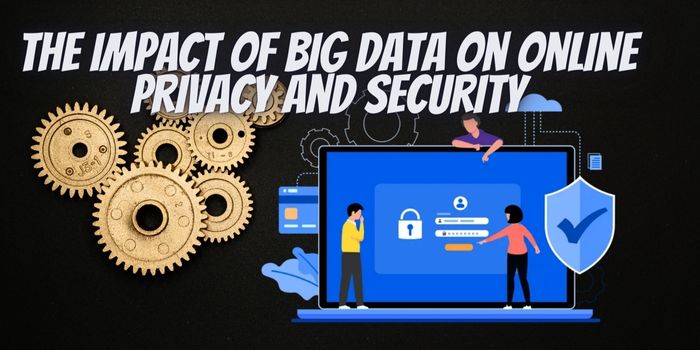The Impact Of Big Data On Online Privacy And Security
In today’s digital world, personal data is a valuable asset that is frequently shared online. As the use of big data increases, it has become increasingly important to understand the impact of this technology on online privacy and security. Big data can be used by businesses to better understand their customers and target products and services more efficiently; In this article, we will explore the impact of big data on our online privacy and security, as well as some strategies for protecting ourselves from potential vulnerabilities.
How Can Big Data Impact Privacy and Security Online?
Big data has become a major player in how online activity is monitored, tracked, and even shared. The use of big data in the digital age can be both beneficial and dangerous to users. It is important for internet users to understand how big data affects their privacy and security online so that they can take steps to protect themselves.
Using VPNs or virtual private networks can help safeguard users’ information by encrypting any transferred data. Additionally, some browsers offer features like “Do Not Track” which prevents websites from collecting user browsing data without permission. This can provide extra assurance when using public wifi networks or unfamiliar websites that may have been compromised by hackers.
Why Privacy And Security A Challenge In Big Data?
Big data is a powerful tool that has revolutionized the way we do business and interact with each other. However, as with any technology, there are potential risks associated with it. Namely, privacy and security are becoming increasingly difficult to protect when using big data. With so much personal information being accessible online, companies must ensure that their customers’ data remains secure and private.
Types of Big Data Technologies Used in Online Security?
Big data is becoming increasingly important in the field of online security. By collecting and analyzing large amounts of data, security experts can identify patterns and trends that can help them to better understand and protect against potential threats. There are a variety of different big data technologies that are used in online security, including:
-Data mining: This is a process of extracting valuable information from large data sets. Data mining can be used to uncover trends and patterns that can help to improve security measures.
-Predictive analytics: This is a type of big data analysis that uses historical data to make predictions about future events. Predictive analytics can be used to identify potential security risks and take steps to mitigate them.
-Data Visualization: This is a way of representing data in a graphical or pictorial format. Data visualization can be used to spot trends and patterns that may not be immediately apparent in raw data sets.
-Behavioral analytics: This is a type of analysis that looks at people’s behavior in order to identify potential risks. Behavioral analytics can be used to detect anomalies that could indicate a security threat.
What Can You Do to Secure Your Big Data?
As the world increasingly moves online, the importance of data security grows. Big data is a term used to describe the large volume of data that organizations create and store. This data can be sensitive and confidential, making it a prime target for cybercriminals. To protect your big data, you can use various technologies and NordVPN.
NordVPN is a virtual private network service that encrypts your internet traffic and routes it through a secure server. This makes it difficult for anyone to intercept or access your data. NordVPN 3- years plan also offers a double VPN feature, which encrypts your traffic twice for extra security. In addition to using NordVPN, there are other steps you can take to secure your big data.
Some businesses choose to store their data offline, in physical servers. This can be more secure than storing data online, as it is not as vulnerable to cyber-attacks. However, offline storage can be expensive and inconvenient. Another option is to encrypt your data. This makes it harder for criminals to access your information even if they do manage to steal it.
There are many technologies available to help you protect your big data. By taking advantage of these tools, you can keep your information safe from criminals and ensure that only authorized users have access to it.
Conclusion
In conclusion, the impact of big data on online privacy and security cannot be underestimated. Big data can help to improve the user experience by providing more targeted services, however, it must be used responsibly and in accordance with consumer privacy laws. It is also essential that companies deploy appropriate cybersecurity measures to protect their data from cyber attackers. Consumers have a responsibility to ensure that their personal data is adequately protected by utilizing strong passwords and actively securing their accounts against malicious activity.
